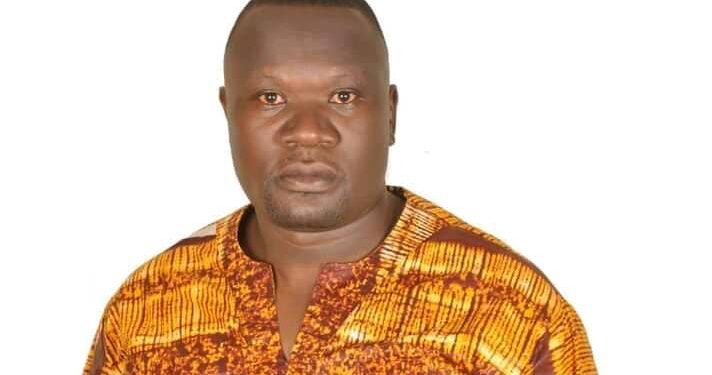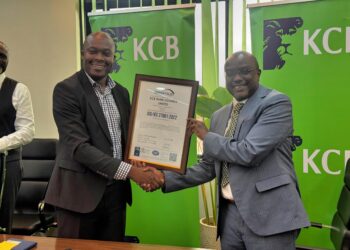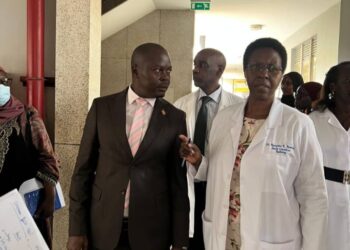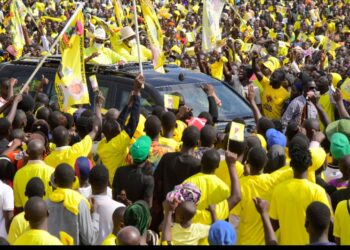President Yoweri Kaguta Museveni’s nomination for the 2026–2031 presidential term marked a defining moment in Uganda’s political trajectory, not merely as a procedural milestone but as a symbolic reaffirmation of continuity, stability, and transformation. Held on September 23, 2025, the event unfolded with a blend of grandeur, strategic messaging, and emotional resonance that set it apart from previous nominations. From the electrifying atmosphere at Kololo Independence Grounds to the President’s forward-looking speech, the day was a masterclass in political choreography and national mobilization.
Museveni’s arrival at the Electoral Commission headquarters was preceded by a coordinated show of force and unity between the National Resistance Movement (NRM) and the Patriotic League of Uganda (PLU), the latter being a youth-driven pressure group linked to Gen Muhoozi Kainerugaba. The joint escort of the President by a 20-member team, including top NRM Central Executive Committee officials and PLU representatives, signaled a strategic fusion of generational support bases. Richard Todwong, NRM Secretary General, emphasized that the campaign would be jointly run to ensure Museveni secures “80 percent or more of the vote,” a bold target that reflects the party’s confidence in its grassroots machinery.
But it was at Kololo where the nomination transformed into a national spectacle. Kampala turned yellow as thousands of supporters, many ferried from across the country, converged in a sea of coordinated enthusiasm. The crowd’s composition—youth groups, cultural leaders, religious figures, and ordinary citizens—reflected the broad national appeal Museveni continues to command. The First Lady, Janet Museveni, captured this sentiment poignantly when she said, “We had 454 secondary schools in 1986, but now we have 1,400. We started UPE with 6,880 schools; today we have 12,549. Yet we still have pupils without schools. Let us finish what we started”.
Museveni’s post-nomination message was both reflective and aspirational. “Where we are moving to now is to again convince the people of Uganda of what has been achieved in the past, and what we are planning to do next,” he declared. He outlined two central thrusts for his next term: first, to elevate Uganda from a lower-middle-income to a high-middle-income economy, and second, to ensure that every Ugandan benefits from the nation’s economic gains. “If you check the figures, the GDP of Uganda has doubled—from about $34 billion to $66 billion. To double the size of GDP in one term is not a mean achievement,” he noted, attributing the surge to infrastructure development, electricity expansion, and a highly educated workforce.
The President’s emphasis on inclusive growth was underscored by his pledge to involve every Ugandan in the money economy. “Everybody must be involved,” he said, stressing that wealth creation must be democratized. He announced new funding initiatives tailored to different social groups, including a fund for university graduates who remain unemployed two years after graduation, an expanded ghetto youth fund, and skilling programs across all 171 districts and municipalities. These proposals reflect a nuanced understanding of Uganda’s socio-economic landscape, where 33 percent of households still operate outside the formal economy.
Museveni’s seniority in leadership—now seeking a seventh term—was not presented as a liability but as a source of institutional memory and strategic foresight. At 81, his longevity is framed as a stabilizing force in a region often plagued by political volatility. Speaker of Parliament Anita Among praised him for ensuring peace and security, urging Ugandans to “entrust the President with their vote” to safeguard the gains made under his tenure. Al-Hajji Moses Kigongo, NRM’s First National Vice Chairman, echoed this sentiment, calling Museveni’s candidature “a new chapter” and rallying voters to support NRM candidates across the board.
The nomination also addressed earlier fears that Museveni might not seek reelection. Speculation had swirled around his potential retirement, especially with the rising visibility of Gen Muhoozi and the PLU. But Museveni’s decision to run again was framed as a response to national demand and unfinished business. “We celebrate what we have achieved, but we must now leap forward,” he said, positioning himself as the custodian of Uganda’s transformation agenda.
Uganda stands to benefit from Museveni’s continuation in several ways. First, his administration’s track record in infrastructure development is undeniable. The country now boasts over 6,000 kilometers of paved roads, up from just 987 kilometers in 1986. Electricity access has expanded dramatically, with rural electrification programs reaching previously underserved areas. Second, his leadership has attracted foreign direct investment, thanks to Uganda’s reputation as a “peaceful and profitable” destination. Third, his focus on industrialization—evident in local automobile assembly and agro-processing—positions Uganda to become a regional manufacturing hub.
On the ballot, voters can expect a manifesto that builds on these achievements while addressing persistent gaps. Museveni has promised to elaborate on his priorities in upcoming rallies, with a campaign roadmap coordinated jointly by NRM and PLU. The manifesto is expected to focus on education reform, healthcare access, agricultural modernization, and digital innovation. His commitment to free education in government schools, timely road maintenance, and safe water for every village reflects a people-centered approach that resonates with both rural and urban voters.
The nomination event also had its lighter moments, including a viral slip where Museveni referred to the upcoming term as “1926–1931” instead of 2026–2031. The gaffe sparked a wave of memes and TikToks, turning the moment into a humorous footnote in an otherwise serious political day. Yet even this episode underscored Museveni’s enduring presence in Uganda’s political consciousness—a figure so familiar that even his missteps become part of the national conversation.
In sum, Museveni’s nomination was not just a procedural act but a reaffirmation of a political legacy that spans nearly four decades. It showcased a leader still deeply engaged with the aspirations of his people, a party machinery capable of mass mobilization, and a vision for Uganda that blends continuity with transformation. As the country heads toward the 2026 elections, the question is not merely who will lead, but how Uganda will navigate the next chapter of its development story. Museveni’s message was clear: “Together, we protect what we have built and take a bold leap forward”.
The writer is the Deputy Resident City Commissioner for Nakawa Division
Do you have a story in your community or an opinion to share with us: Email us at editorial@watchdoguganda.com














